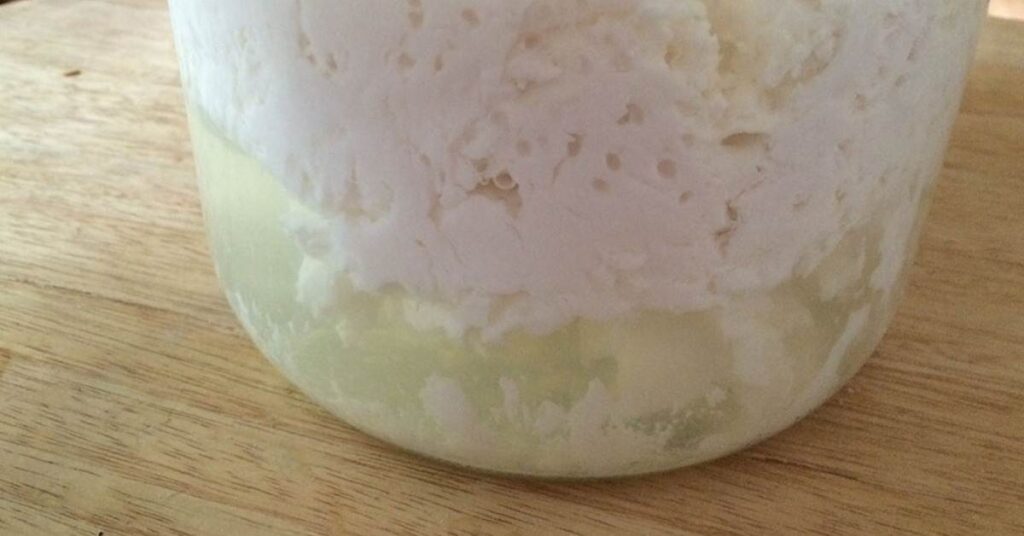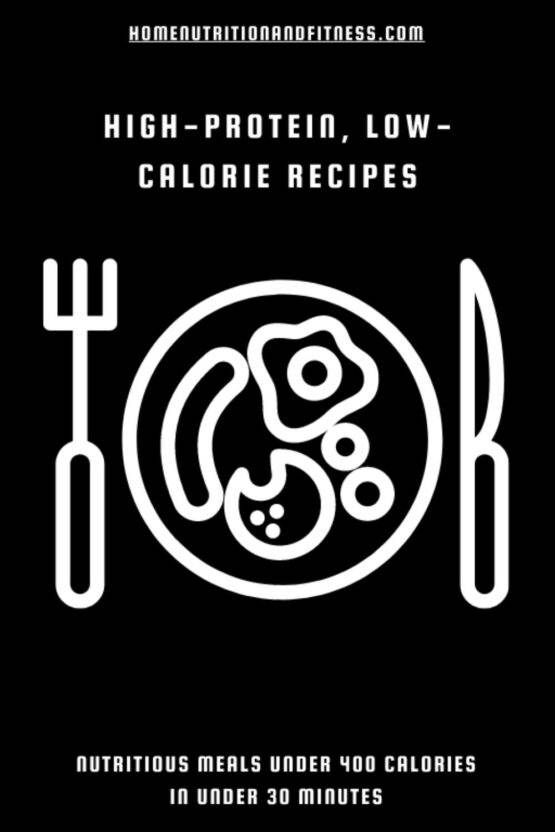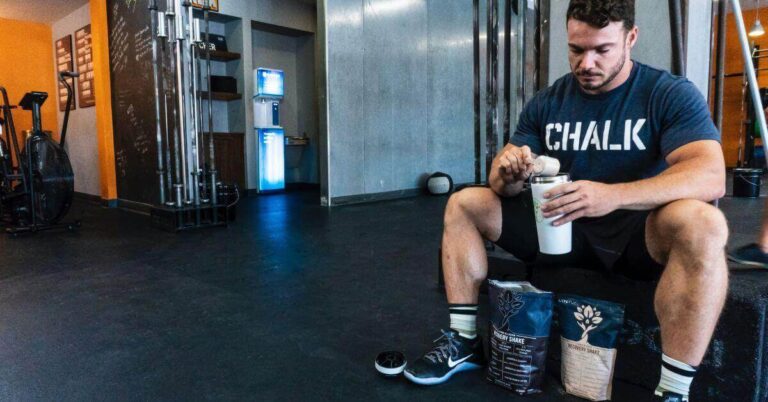It can get a bit boring and tedious having the same protein powder mixed with water day after day. This is exactly why I’m always looking for different ways to get my protein fix.
I usually mix my protein powders with almond milk and a mix of bananas, strawberries, or raspberries. Mixing kefir and protein powder is thanks to my dogs. Weird, I know!
I feed them kefir to aid their digestion and for general health and never actually thought of using it myself until recently. It’s a lot thicker than water or almond milk and has a smoother texture when blended.
In this post, I’ll explain what protein powder and kefir are, highlight the benefits of combining them, provide tips for mixing up kefir protein shakes, and share some of my favourite recipes. Let’s dive in!
Mixing kefir with protein powder not only gives a change in flavour but adds a big nutritional boost. Mixing the 2 turns a boring protein shake into a creamy, tasty meal replacement that’s beneficial for your gut and will leave your taste buds tingling and your hunger satisfied.
Affiliate Disclosure: Please note that some of the links on this page may be affiliate links. This means that if you click on these links and make a purchase, we may earn a small commission, at no additional cost to you. As an Amazon Associate, we earn from qualifying purchases. We only recommend products and services that we believe in and use ourselves. Your support through these links helps us keep the content coming. Thank you for your support!
What is Protein Powder and Why Do People Use It?
Protein powders are one of the most well-known supplements for gymgoers and athletes. It comes in various forms, like whey, casein, or plant-based options, all providing a quick, convenient way to up your protein intake. It’s commonly used in shakes, and smoothies, or can even be used in brownies and cakes.
Here are some of the main benefits of protein powder:
- Convenient Protein Boost: They provide a quick and easy way to increase protein intake, which is essential for muscle growth and repair.
- Wide Range of Flavours and Forms: Protein powders come in numerous flavours, ranging from vanilla and chocolate to fruit and coffee, allowing users to choose according to their taste preferences. There are also vegan, plant-based options like pea and soy protein.
- Aids in Weight Management: Protein makes you feel fuller for longer, and also uses more energy to digest than carbohydrates and fats. A low-calorie, high-protein diet is a great way to lose body fat. I’ve used protein powders as part of my weight loss program.
Protein powders are a quick and easy way of increasing protein intake by adding to drinks, meals and snacks.
What is Kefir and Why is it Good for You?
Kefir is most likened to being a drinkable yoghurt.
It is made by adding kefir grains – colonies of yeast and bacteria – to milk and letting it ferment. Kefir is known for its probiotic properties, providing a healthy dose of gut-friendly bacteria in every serving. It’s also a good source of protein, calcium, and B vitamins.
It’s really simple to make your own kefir at home using kefir grains:

- Place Kefir Grains in the Jar: Place the Kefir grains in a clean glass jar.
- Add Milk: Pour the milk over the kefir grains. Leave at least an inch of space at the top of the jar to allow room for expansion.
- Cover the Jar: Place a cloth or paper towel over the jar’s opening and secure it with a rubber band or string. This allows the kefir to breathe while keeping out any contaminants.
- Ferment: Place the jar in a warm spot (ideally between 68-85°F or 20-30°C) and let it ferment for 12 to 48 hours. The fermentation time depends on the temperature and your taste preferences. A shorter fermentation will result in sweeter kefir, while a longer fermentation will make it tangier.
- Check the Kefir: You’ll know the kefir is ready when it has thickened to the consistency of buttermilk and has a tangy smell. If you see any separation into layers (with whey at the bottom), it’s likely over-fermented, but it’s still edible.
- Strain the Grains: Use a plastic or nylon strainer to separate the kefir grains from the liquid. Set the grains aside for the next batch, and store the liquid in the fridge. This liquid is your finished kefir.
- Repeat: You can use the kefir grains for your next batch immediately, following the same process.
Investing in your own kefir grains is something worth considering for your gut health and your pocket!
Benefits of Adding Kefir to Your Protein Shake
Kefir has many health benefits on its own but adding a scoop of protein to it gives you a huge nutrient boost alongside your protein fix.
Here are some specific benefits of adding kefir to protein shakes:
Boosts Probiotics
The live active cultures in kefir give you a huge probiotic boost, promoting healthy digestion and gut function. If you exercise regularly, replenishing probiotics is important. The probiotics in kefir can help populate the gut with beneficial bacteria and improve digestion and nutrient absorption.
Adds Protein
With approximately 6-10 grams of protein per serving (150-250ml), kefir adds a 25-50% boost to your protein intake. This supports muscle repair and growth as well as making you feel fuller for longer.
Heart health
Certain fats and probiotics in kefir help improve cholesterol levels and blood pressure, lowering cardiovascular disease risk.
Anti-inflammatory effects
Compounds in kefir exhibit anti-inflammatory activities that may help reduce systemic inflammation implicated in certain diseases.
Provides a Smooth, Creamy Texture
Kefir has a thin yoghurt-like consistency. Mixing any form of protein powder into it is easy. The grainy texture you get when adding to water is gone and it’s like you’re drinking a yoghurt smoothie.
Makes the Shake More Nutritious
In addition to an increase in protein and probiotics, kefir provides vitamins, minerals and antioxidants. For example, kefir contains calcium for bone health, vitamin K2 to improve calcium absorption and compounds that help lower blood pressure and cholesterol.
Delicious Tangy Flavour
Kefir’s natural tartness can improve the flavour of bland or overly sweet protein powders. It actually makes soy protein a bit easier to drink!
Meal Replacement
The thicker consistency and high protein content make kefir and protein powder a great meal replacement shake. Add in some fruit to increase your fibre intake too and you’re good to go!
By incorporating kefir into your post-workout or morning protein shake a few times a week, you can enhance the nutritional value and taste while giving your gut health a boost. It’s a simple way to upgrade your normal routine.

Do Protein Shakes Make Your Poop Hard?

So I bet you weren’t expecting to see this as a question were you? Or maybe you were!
Whatever you think, it’s known that some people (not me, honest!) find that consuming protein shakes, especially those made with whey protein, can lead to constipation. There are a few reasons why:
- Low Fibre Intake: Many protein powders contain little to no fibre. Consuming protein shakes as a replacement for meals that otherwise would contain fibre-rich foods, this lack of fibre can lead to constipation.
- Dehydration: Metabolising protein requires additional water, and if you are not drinking enough fluids, it can lead to dehydration, which is a common cause of constipation.
- Dairy Content: Some protein powders, especially those made from whey or casein (both milk proteins), may cause constipation in individuals who are sensitive to dairy or lactose.
- Additives and Fillers: Some protein powders contain additives, sweeteners, or fillers that can irritate the digestive system and lead to constipation in some people.
- Gut Microbiome Changes: Dramatic changes in diet, including a sudden increase in protein intake, can affect the gut microbiome, which might lead to constipation. The gut microbiome needs a varied diet to thrive, and an imbalance can cause digestive issues.
Can Kefir Help With Constipation?
Yes, adding kefir to protein shakes can help counteract constipation problems! The probiotics and enzymes in kefir help promote healthy digestion and regular bowel movements. Kefir improves gut motility, allowing food to pass through the GI tract more easily.
Much of the lactose in the milk has already been broken down during the fermentation process which can help those with lactose intolerance.
Kefir also helps soften stools and get things moving. So drinking kefir protein shakes instead of just protein and water can alleviate constipation issues.
Yes, You Can Mix Kefir and Protein Powder!
Mixing kefir and protein powder is a no-brainer way to increase the nutritional value of your shakes. The probiotics, protein and other nutrients in kefir perfectly complement protein powder.
While kefir adds more calories, carbs and fat compared to protein powder alone, the benefits of the added nutrition far outweigh any drawbacks for most people.
Using your own kefir grains to make your kefir is a cheap and easy way to boost your gut health and protein intake. Add a scoop of protein powder into the mix and you’ve got yourself a great meal replacement too.
For more smoothie ideas, why not try out this 21-day smoothie diet program?
See also:








Hi there 👋
This is a very informative article. I am amazed by what I have learned, although I would like to know if this would work for someone who is trying to gain weight. I was told the best to gain weight, for someone who uses lifting weights as a way of exercising, is to increase protein intake. You mentioned that I will get fuller for longer, will this not ultimately result in losing weight instead?
Hi Lungi!
I’m assuming by gaining weight, you mean gaining muscle mass? If so, this would 100% work for you. Protein helps to build muscle mass which is why increasing your protein intake is a good way to help with bulking and weight gain. While it might make you feel fuller for longer, as long as you are eating enough overall calories throughout the day, you shouldn’t lose weight or muscle mass. Eating in a calorie surplus, increasing protein intake and resistance /weight training will lead to weight/muscle mass gains. There are some exceptions when a calorie surplus isn’t always necessary. For more information, have a look at How Long Does it Take to Lose Fat and Gain Muscle.
Thanks for taking the time to comment.